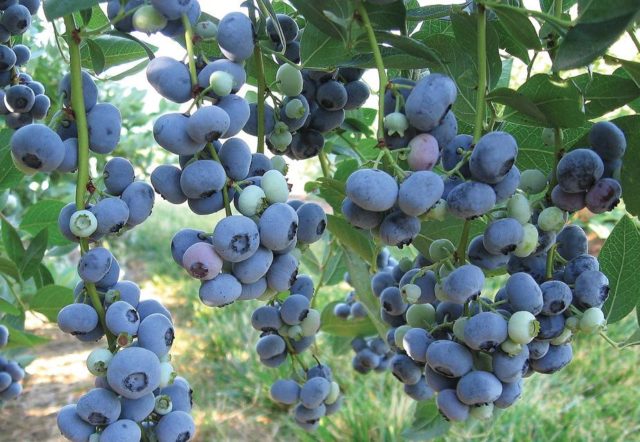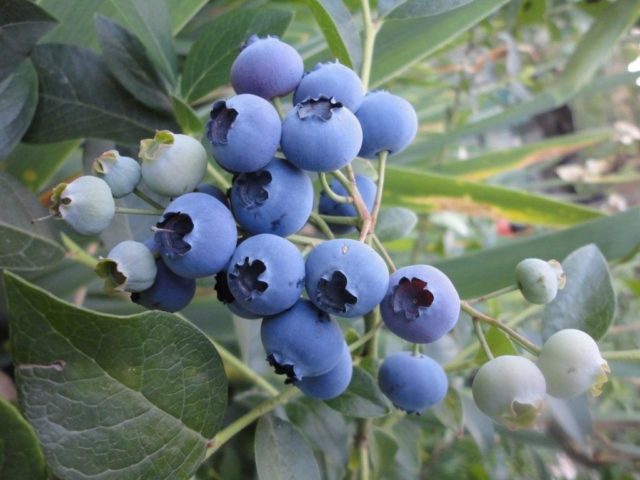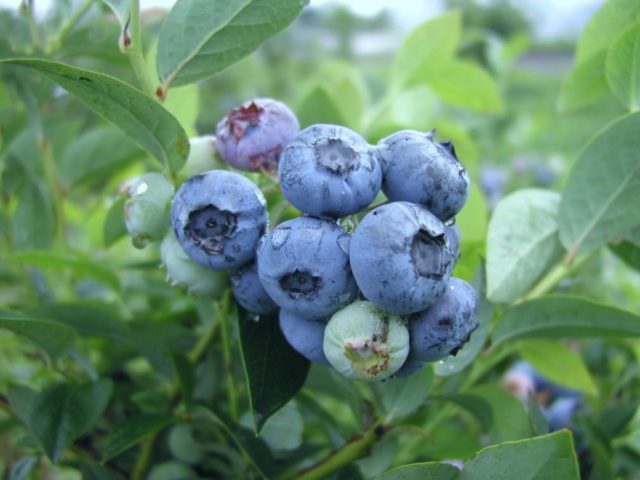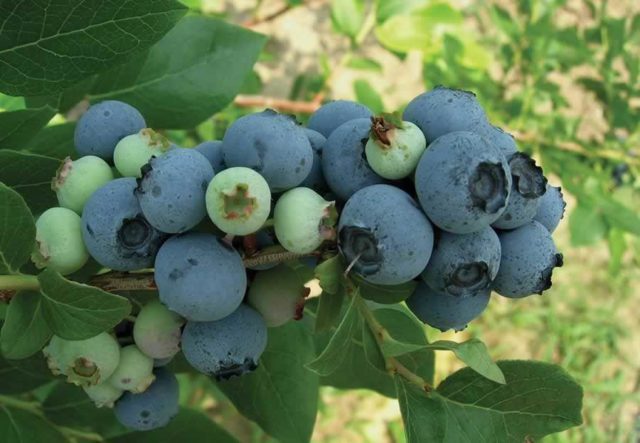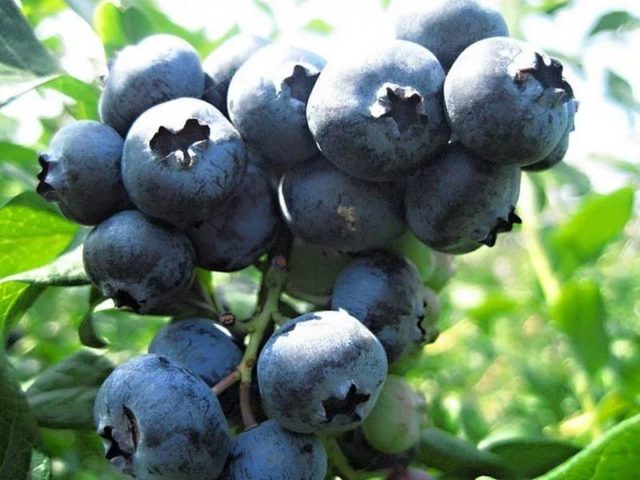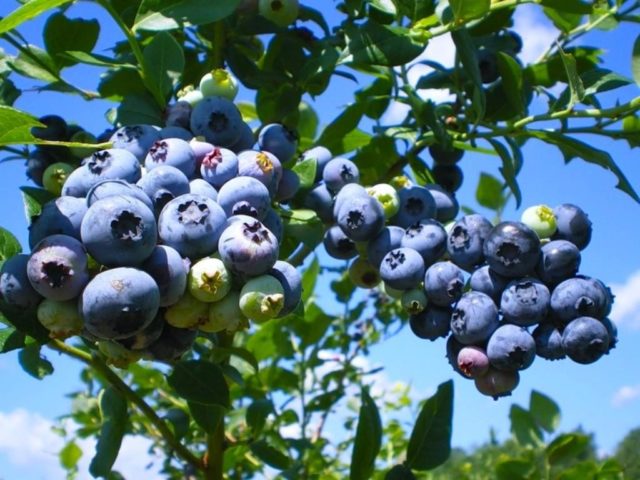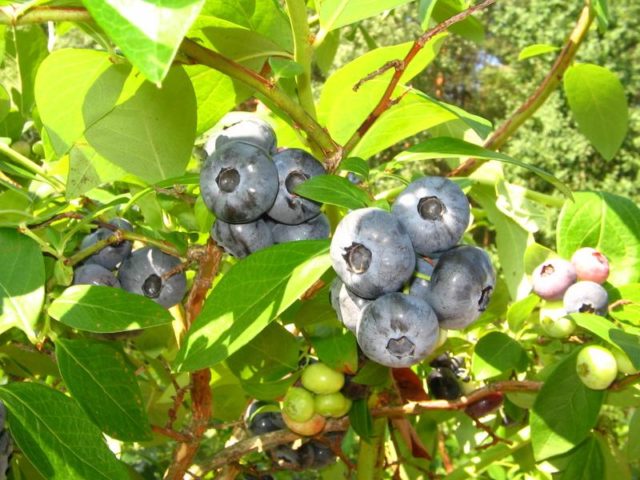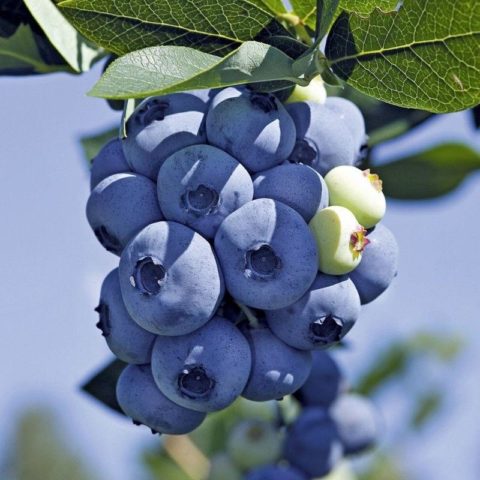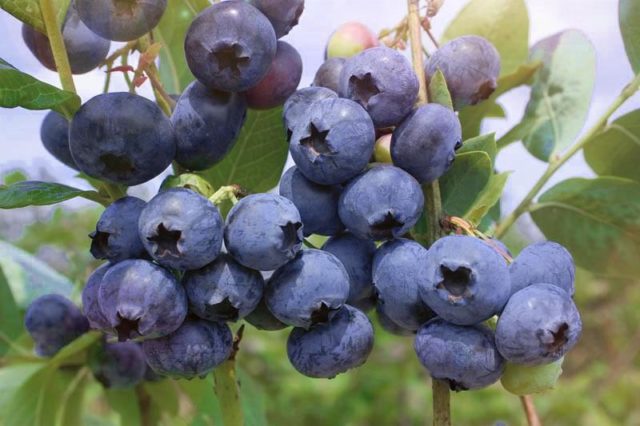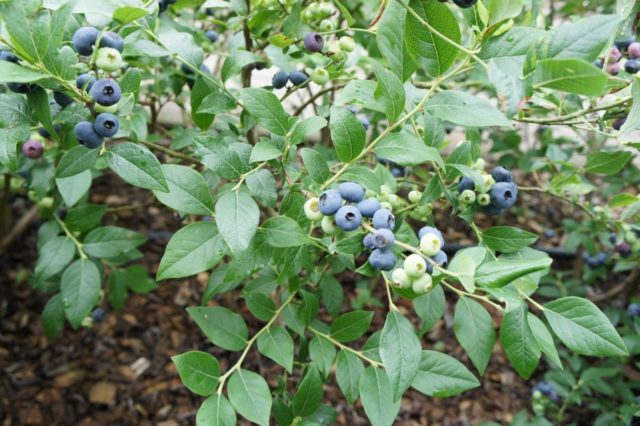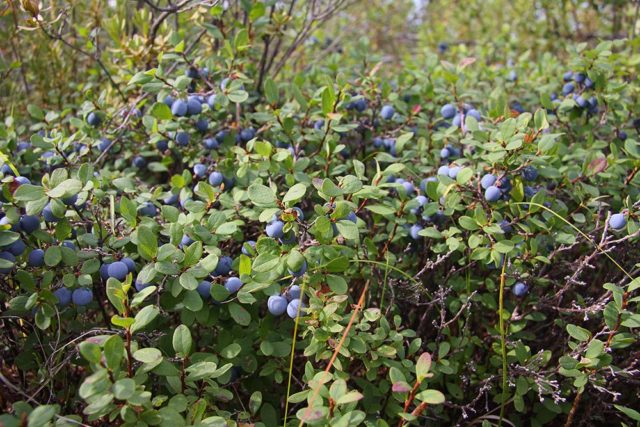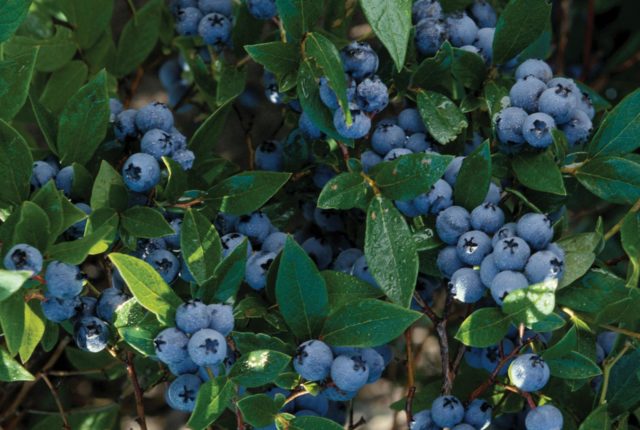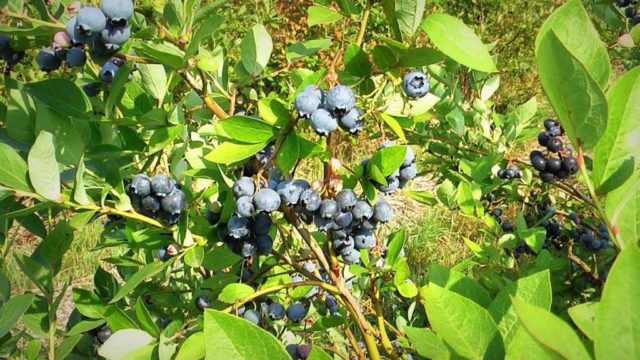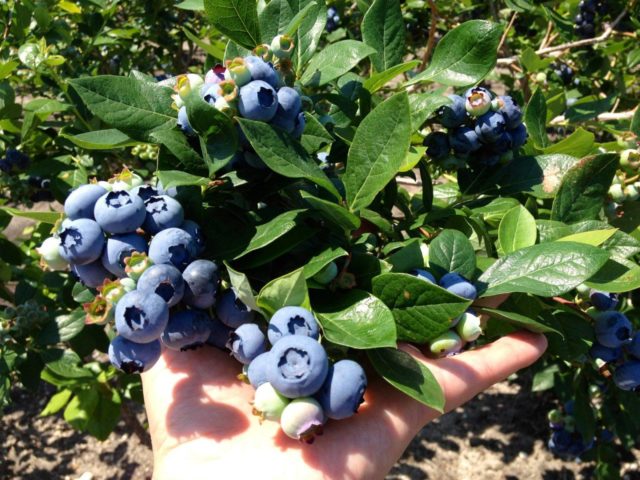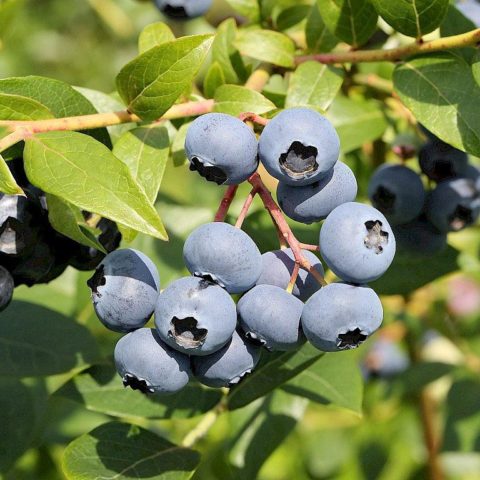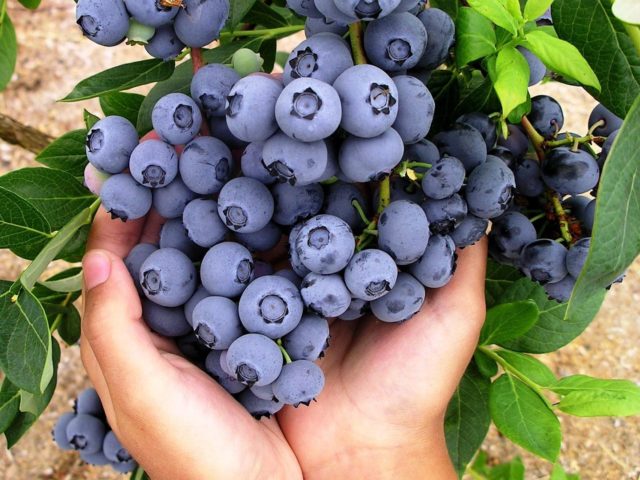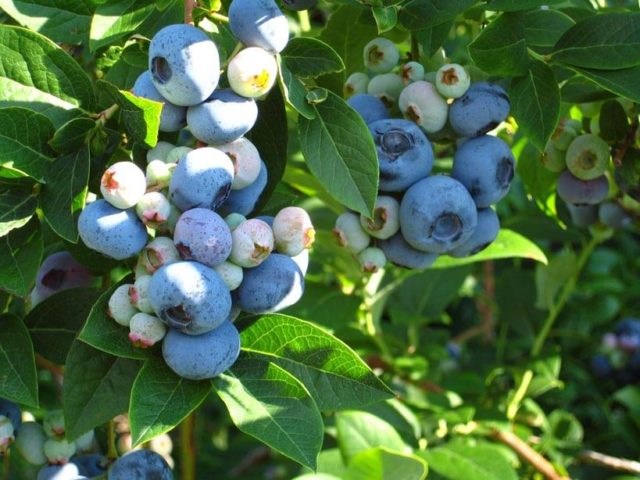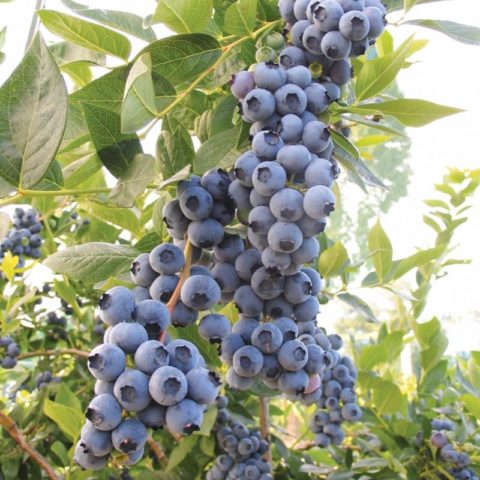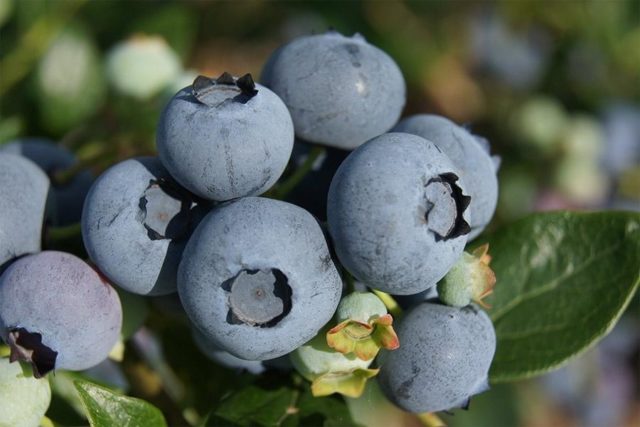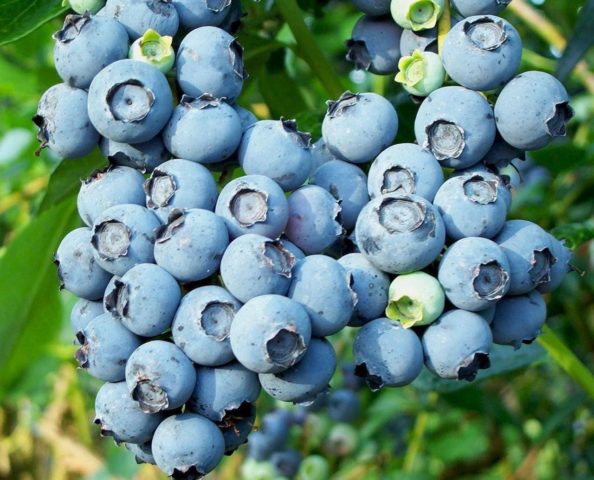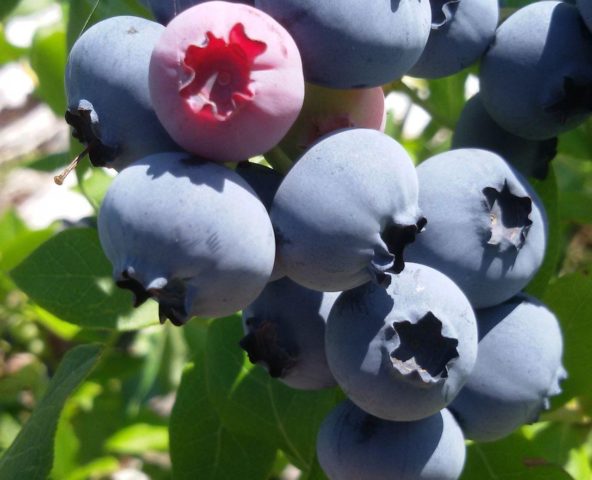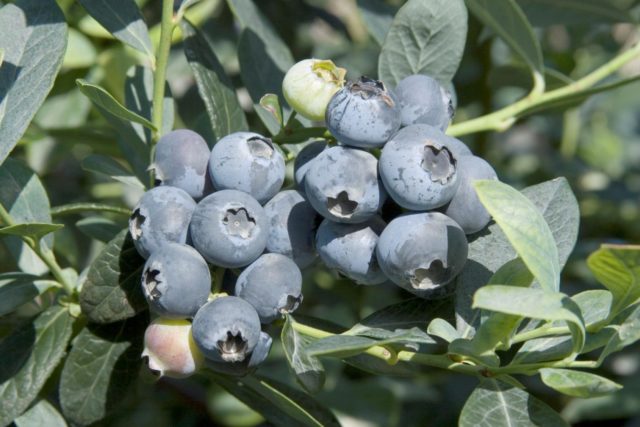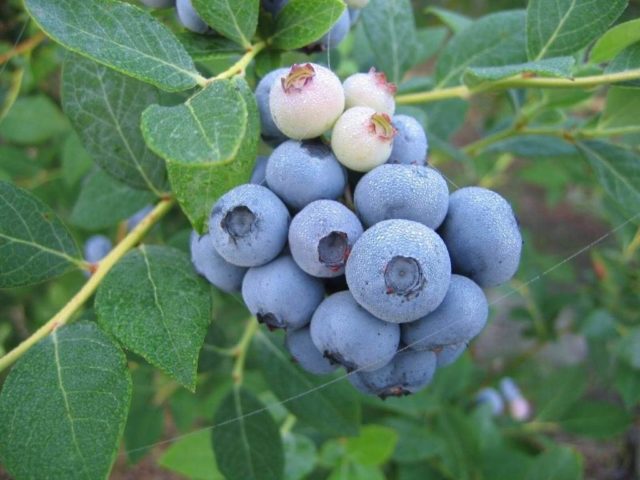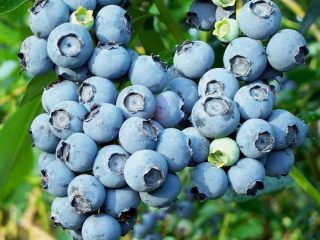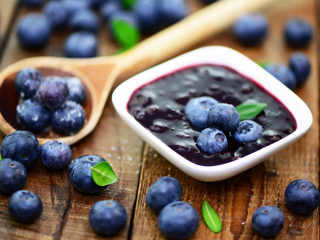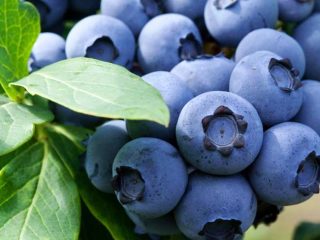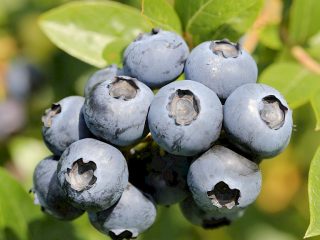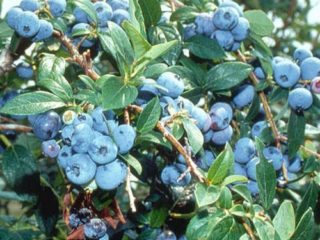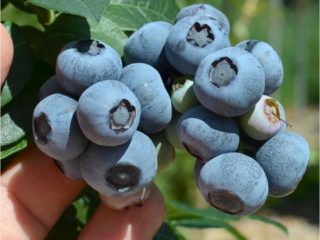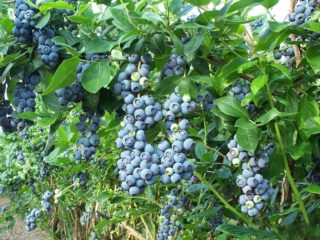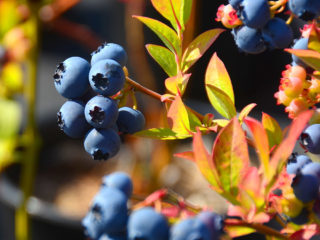Content
- 1 Climate features in the Moscow region
- 2 What qualities should blueberry varieties for the Moscow region have?
- 3 The best blueberry varieties for the Moscow region
- 4 Self-fertile blueberry varieties for the Moscow region
- 5 Fruitful varieties of blueberries for the Moscow region
- 6 The most delicious and sweet blueberry varieties for the Moscow region
- 7 What varieties of blueberries are best to plant in the Moscow region?
- 8 Conclusion
Blueberries are an excellent option for growing in central Russia. The culture is only gaining popularity among gardeners. Reliable and unpretentious hybrids are chosen for planting. Positive reviews about blueberry varieties for the Moscow region confirm the promise of this crop.
Climate features in the Moscow region
The climatic conditions of the Moscow region are perfect for growing blueberries. Temperature conditions, precipitation levels and soil composition contribute to the active development of bushes. The region has a temperate climate, characterized by warm summers and not too cold winters with snow cover.
Blueberries grow well in climates with short and cold summers. The berries have time to ripen even with a lack of heat. In the Moscow region, summer lasts about 3.5 months. This is enough to form a harvest.
The acidity of the soil is important for the crop. The bushes develop best at a pH of 3.5 to 5. Soddy-podzolic and gray forest soils predominate in the Moscow region. They are located in the eastern and southern parts of the region. Before planting, deoxidizers are added to such soil. In the east and north there are swamp and peat soils, which are excellent for growing crops.
What qualities should blueberry varieties for the Moscow region have?
Before planting crops in the Moscow region, they are guided by several factors:
- unpretentiousness;
- self-fertility;
- high productivity;
- good taste;
- transportability and keeping quality of the crop;
- frost resistance;
- immunity to diseases;
- winter hardiness.
The best blueberry varieties for the Moscow region
All varieties of blueberries can be divided into several groups. They differ in terms of fruiting, bush dimensions, fruit taste and yield.
Early
Early blueberry varieties for the Moscow region produce a harvest in mid-July. Fruiting of the crop is extended over 2 - 3 weeks. This is the best option for planting in the region.
Early varieties of garden blueberries for the Moscow region:
- Blugold. A hybrid of American selection, known since 1989. The bushes are low, with a large number of shoots up to 1.2 m. The berries are bluish in color, dense, of medium size. The taste characteristics of the fruit are high. Productivity ranges from 5 to 7 kg. Frost resistance - up to -34 °C. Blugold is easy to care for and is suitable for beginner gardeners;
- River. Forms a strong, erect bush up to 2 m in size. Berries up to 15 mm in size, intense blue in color, have a sweet, spicy taste. They hang on the branches for a long time after ripening and are stored in the refrigerator for a long time. The frost resistance of the variety is high.Productivity reaches 8 kg;
- Bleuetta. It has the appearance of a low-growing bush, which does not exceed 1 - 1.5 m. The yield of the crop is high and stable, reaching 5 - 9 kg per plant. The fruits are small, 12 mm in diameter, dark blue, with dense pulp. The tasting qualities of the berries are high. The crop does not tolerate long-term storage.
With an average ripening period
Medium-ripening hybrids produce a harvest in early August. Such varieties give good fruiting in the conditions of the Moscow region without any problems.
Varieties of medium-ripening garden blueberries for the Moscow region:
- Bluejay. The plant forms a powerful bush up to 1.8 m in size. Its berries are medium-sized, dense, and do not crack. The taste of the culture is high. Its yield reaches 6 kg. The harvest can withstand long-term storage and transportation. The frost resistance of the crop is increased, about -34 °C;
- Patriot. A plant with erect shoots up to 1.8 m high bears large bluish fruits up to 20 mm in size. The taste properties of the berries are satisfactory. Productivity reaches 9 kg of fruit. As the bush grows, its fruiting deteriorates, so pruning of the shoots is mandatory;
- Blue Ray. A bush with straight shoots that grows up to 1.8 m. The berries are large, 17 mm in diameter, with a blue shiny skin. The fruiting period of the crop is extended, but its yield is stable and high, reaching 8 kg per plant. Hybrid Bluray has a decorative appearance and can withstand frosts down to -34 °C. A mandatory stage of care is annual pruning of shoots.
Late
These are representatives of a late-ripening crop that produce a harvest in mid- and late August. The best varieties of blueberries for the Moscow region with photos:
- Herbert. A powerful spreading bush up to 2.2 m high. Its fruits are large, up to 22 mm in diameter. The color of the berries is bright blue, the pulp and skin are of medium density. The taste is good, delicate, there is a pleasant aroma. After ripening, the fruits do not fall off the branches. The harvest volume is up to 4 kg;
- Thoreau. A large hybrid with straight shoots growing up to 2 m. The berries of the crop are medium-sized, blue in color, with smooth skin. Fruiting is regular, the harvest volume is up to 8 kg, it is harvested in two stages. The Toro variety is universally used: used fresh and for processing. Frost resistance - up to -30 °C;
- Bonus. It has the appearance of a spreading bush up to 1.5 m high. Its fruits are very large, up to 30 mm in size, with a small scar. The skin is light blue, elastic, the taste is rated as good. Productivity is regular, reaches 8 kg. Maturation is extended over time. The hybrid is resistant to temperature changes and does not freeze in winter at temperatures down to -34 °C.
short
Low-growing hybrids have compact sizes. In the Moscow region they reach a height of 1 m. Due to this, the bush begins to bear fruit early. Such varieties take up little space on the site and require minimal care.
The best low-growing blueberry varieties for the Moscow region:
- Northblue. A plant 60 - 120 cm high, which bears fruit in medium terms, bearing dark blue, high-quality berries measuring 13 mm. They keep well refrigerated. Productivity is up to 3.5 kg. Frost resistance - up to -40 °C;
- Shegarskaya. This Siberian hybrid was obtained by selecting wild forms. It is highly resistant to cold and disease.The Shegarskaya variety is self-sterile. The branches of the bush are medium-sized and bear dark blue fruits with a diameter of 11 mm. They taste sweet, with a pleasant sourness. Their skin is tender, with a bluish coating;
- Northcountry. A low-growing bush that reaches a height of 70 - 90 cm. The plant is spreading and powerful. Its fruits are medium in size, up to 15 mm. The color is light blue, the taste is high. The pulp of the berries is dense, which ensures good keeping quality. The harvest volume reaches 8 kg. The Northcountry variety is recommended for processing. At the same time, it is winter-hardy and not demanding on the composition of the soil.
Tall
Tall varieties are native to North America. In nature, they are found in swamps and forest thickets. Numerous varieties have been obtained based on wild growing forms. They are distinguished by high yield, large and sweet fruits.
The best tall blueberry varieties for growing in the Moscow region:
- Coville. Hybrid of the middle fruiting period. Shrub with straight shoots, grows up to 2 m or more. The fruits are grayish in color, large, up to 16 mm in girth. The taste is pleasant, sweet and sour. The yield of the bushes is above average and amounts to up to 6 kg. The plant quickly adapts after planting;
- Spartan. A powerful shrub with straight branches that reach 2 m. Ripening occurs at the end of July, bears up to 6 kg of fruits of light blue color, 16 - 18 mm in girth. Their pulp is dense, withstands transportation, the taste is pleasant, with a slight sourness, and the aroma is strong. The plant does not tolerate excess moisture in the soil and is resistant to moniliosis and mummification of fruits;
- Stanley. Tall powerful shrub of early fruiting. Its shoots grow up to 2 m or more.The plant's yield is average, up to 5 kg. Its fruits are light blue and large. They have a pleasant dessert taste and are not subject to cracking. The shelf life of the crop is limited. It is recommended to find a use for it immediately after collection.
Self-fertile blueberry varieties for the Moscow region
Most blueberry varieties are self-fertile. These varieties produce white-pink flowers collected in racemes. Pollination is carried out by bees and other insects. To obtain a high yield, at least 2 bushes are planted nearby. The main condition is flowering at the same time.
The best self-fertile varieties of garden blueberries for the Moscow region:
- Elliot. A tall, late-ripening hybrid that grows up to 2.1 m. Its fruits are medium in size, no more than 11 mm. The skin on them is durable, light blue in color. In cold and rainy weather, the pulp acquires a tart flavor. When ripe, a subtle aroma appears. The harvest volume reaches 6 kg;
- Darrow. A tall, large shrub up to 2.1 m in size. Its berries are very large, reaching 20 mm. Their color is blue and they have a pronounced aroma. The taste is unusual, dessert. Up to 8 kg of blueberries are harvested from the bush. The harvest is poorly stored and transported. Frost resistance of the crop is up to -28 ° C;
- Liberty. A vigorous growing spreading shrub. Its shoots are strong and tough, up to 1.5 m. The berries are medium and large in size, blue-violet in color, with a sour taste. Their pulp is dense, rich in phenols and antioxidants. Liberty can withstand winter cold down to -37 °C.
Fruitful varieties of blueberries for the Moscow region
Tall plants bring the greatest harvest. Each bush produces up to 9 - 10 kg of berries. The highest quality and largest fruits are harvested in the first wave of ripening. Then their size decreases slightly.
The best productive blueberry varieties for the Moscow region:
- Duke. American hybrid 1.3-1.8 m high. The branches of the bush are straight and rigid. The berries are medium-sized, with a smooth, crispy skin. Frost resistance reaches -28 °C. The fruiting of the crop is stable. When growing, shoots are regularly pruned;
- Nelson. Dense medium-sized shrub, reaching 1.6 m. Fruits in the middle period. Its berries are large, up to 20 mm in size, with blue skin and dense pulp. The taste is good, sweet. Productivity is up to 9 kg per bush;
- Bluecrop. A bush of medium vigor, spreading, reaches 1.8 m in height. The culture ripens at the end of July. This is a reliable and productive hybrid that bears up to 9 kg of fruit. Its berries are large, up to 22 mm in size, collected in long clusters.
The most delicious and sweet blueberry varieties for the Moscow region
Blueberries are characterized by a sweet and sour taste, reminiscent of blueberries. The dessert quality of the berry is affected by the sugar content. In the sweetest varieties this figure reaches 9% or more.
The sweetest blueberry varieties for the Moscow region:
- Northland. A low-growing shrub reaching a height of 1.2 m. It bears fruit in mid-July. The crop yield is stable. Its berries are medium-sized, dense and sweet, and can be stored for a long time. This is one of the most frost-resistant representatives of the crop: it can withstand cold temperatures down to -40 ° C;
- Brigitte Blue. Late ripening hybrid. The bush reaches a height of 2.2 m. Its fruits are 15 mm in diameter, with a strong skin, light blue in color. The taste of the berries is excellent. The harvest volume from the bush reaches 6 kg;
- Rancocas. The start of fruiting occurs in the second ten days of August. The shrub grows up to 1.8 m.Each year it produces many shoots and requires thinning. Its berries have a good sweet taste. The hybrid is characterized by increased resistance to cold and disease.
What varieties of blueberries are best to plant in the Moscow region?
When choosing blueberries for growing in the Moscow region, various factors are taken into account. They focus primarily on the timing of crop fruiting. Early and mid-ripening hybrids are guaranteed to produce a harvest. Late varieties do not always have time to ripen, especially in cold and rainy summers.
In addition, the size of adult shrubs is taken into account. Large and spreading representatives give the highest yield, but take up a lot of space on the site. Low hybrids begin to bear fruit earlier and are compact in size. However, they bear smaller berries.
Particular attention is paid to the winter hardiness of the crop, susceptibility to diseases and pests. Such plants are easy to care for and do not need shelter in the fall.
Conclusion
Reviews of blueberry varieties for the Moscow region show that the plants take root well in the plots and produce high yields. When choosing a hybrid, they are guided by its ripening time, winter hardiness and taste of the fruit.
